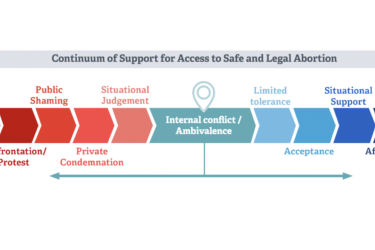
As I write this post, I can’t even recall what the most recent mass shooting was. I know it wasn’t the Pittsburgh synagogue because that’s been a few weeks, and then there was the one at a country music club in Thousand Oaks, Calif., that came after that not long after. (The later incident sticks out in my mind because one victim had earlier survived last year’s Las Vegas mass shooting, also during another country music concert.)
The most recent mass shooting I remember clearly was the Nov. 19 incident at Mercy Hospital in Chicago — primarily because I was talking on the phone with a physician in Chicago when it happened, and we had to cut the interview short. Pretty sure there’s been one or two since. Suffice it to say, it’s extremely difficult to keep up with the increasing number of mass shootings in America.
Nevertheless, each one is important to cover as a public health issue that is only getting worse. What I do recall about all the recent shootings is that I don’t know who the shooter was. That’s new — it used to be hard not to know — and that’s progress. Not focusing so much on the shooter is among the reporting tips offered by German Lopez, a Vox reporter who covers criminal justice and guns, who discussed the subject at the Shorenstein Center on Media, Politics and Public Policy.
Lopez subsequently provided a helpful list of tips for responsibly covering mass shootings to Journalist’s Resource and it’s worth bookmarking, considering how frequent such events happen these days. Among his suggestions is to focus more on everyday gun violence, which kill far more people every year than mass shootings.
Lopez recommends talking to experts about the how and why of these events, as well as prevention, rather than spend too much space on the salacious details of every incident. He also offers suggestions on additional angles journalists can pursue, such as domestic violence involving firearms and research pointing to solutions for the problem.
Perhaps most importantly for those focused on medical studies, Lopez debunks a popular misconception that there is no good research on gun violence. It’s true that the Centers for Disease Control does not conduct gun violence research (a result of the Dickey Amendment), but that doesn’t mean there’s not plenty of high-quality research out there. A wealth of studies on gun violence as a public health issue, for example, is available from Harvard’s Injury Control Research Center, Johns Hopkins University’s Center for Gun Policy and Research and the University of California, Davis’s Violence Prevention Research Program.









